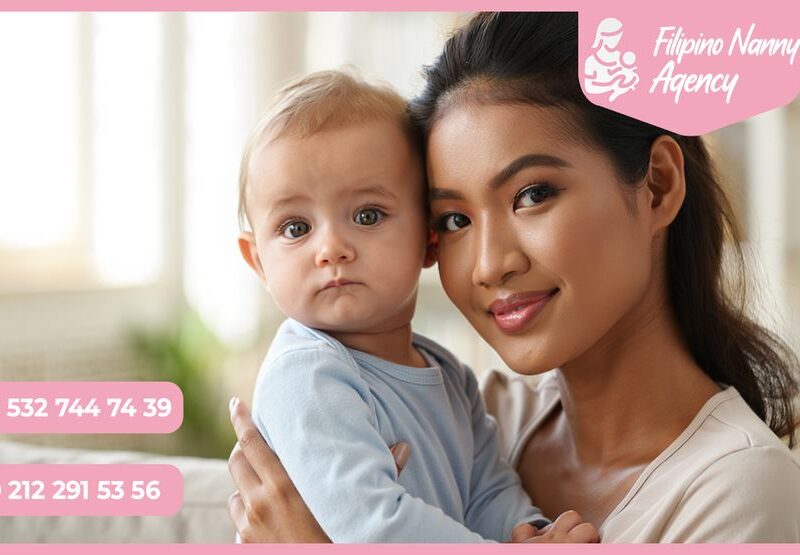Hiring a babysitter in can feel simple at first — until you realize how many things actually matter. And one of the most overlooked but important factors? Certifications. Especially if you’re considering a Filipino babysitter (and many families across world are), knowing what kind of training they’ve had can help you make a smarter, safer choice. But not every certificate is essential, and not every badge guarantees great care.
So, which ones actually matter? And how do you know what’s worth prioritizing based on your child’s needs?
Here’s a real-world guide from us at filipinonanny.agency — based on what we’ve seen work in homes across Europe, and the caregivers we proudly place.
Why Babysitter Certifications Matter
We’ve seen amazing Filipino babysitters with no formal certificates — just years of experience and a natural gift for connecting with children. But we’ve also seen how the right training can boost confidence, prevent emergencies, and create smoother routines.
Certifications don’t replace warmth or intuition. But they:
- Show that the babysitter takes their job seriously
- Equip them to handle emergencies safely
- Add a layer of trust for first-time parents
- Offer structured understanding of child behavior and safety
Especially in unfamiliar cities or multilingual households, having a certified babysitter gives peace of mind — to you, your child, and even the babysitter herself.
-
Pediatric First Aid and CPR
This one tops our list for a reason: it can literally save a child’s life.
Every babysitter — whether part-time or full-time — should know how to respond if a child chokes, stops breathing, or has a sudden allergic reaction. First aid and CPR for infants and children are different from adult versions, and proper training matters.
Look for certifications from:
- Red Cross (available across Europe)
- St. John Ambulance
- Local health departments or childcare authorities
At filipinonanny.agency, we prioritize Filipino babysitters who already hold pediatric CPR and First Aid training — or we help them get certified if they’re a strong match otherwise.
This is non-negotiable for us, and it should be for you too.
-
Basic Childcare & Development Courses
Not every family needs a babysitter who’s a certified early childhood educator — but having some background in child development helps a lot, especially if your child is under 5.
These certifications teach babysitters how children learn, behave, and communicate — and how to support that naturally through routine and play.
Common examples include:
- Babysitting Basics (Red Cross or equivalent)
- Early Years Development certificates
- Short courses in Montessori, Reggio Emilia, or Waldorf methods
- Child psychology modules for caregivers
Many Filipino babysitters we work with already have this kind of training — particularly those who have worked in nurseries or previously studied education or healthcare.
If your child is in a critical learning stage — like a toddler or preschooler — this background is a major advantage.
-
Food Safety and Allergy Awareness
If your babysitter will be preparing snacks or meals — or even just managing feeding time — food hygiene matters.
But more importantly, food allergy awareness is something no babysitter should overlook.
What to look for:
- Basic food handling certifications (especially if allergies exist)
- Knowledge of common allergens (nuts, dairy, gluten, eggs)
- Experience using EpiPens or understanding reaction signs
- Ability to read labels and follow parent instructions closely
In many European countries, local food safety agencies offer online courses that cover all of this. In our network, many Filipino babysitters have learned this through experience — especially those who’ve worked in families where allergies were a daily concern.
Don’t skip this if your child has any dietary sensitivities.
-
Fire Safety and Home Emergency Protocol
It’s not just about first aid — what about fire alarms, kitchen fires, or locked doors?
Most babysitters will never face a fire or major emergency. But if they did, would they know where the exits are? Do they know who to call? Could they stay calm and act fast?
Fire safety certification isn’t always required, but it’s smart to ask:
- Have they taken any basic fire safety or emergency response training?
- Do they know what to do if a fire starts?
- Have you walked them through emergency exits and numbers?
We recommend families spend 10 minutes doing a “home tour” the first day their babysitter arrives — even if they’re certified. It’s simple, and it can make a huge difference in high-pressure moments.
-
Local Babysitting or Childcare Certifications (By Country)
Depending on where you live, there may be nationally recognized babysitting certificates that show your caregiver has completed official training.
For example:
- In France: CAP Petite Enfance is commonly recognized for childcare professionals
- In Germany: Tagesmutter (day mother) training can indicate childcare readiness
- In the Netherlands: Kinderopvang certificates are standard for caregivers
- In the UK: Level 2 or 3 Childcare diplomas are often used
Note: Not all of these apply to casual babysitters. But if someone holds them, it’s a bonus — especially if you’re hiring more than just occasional support.
At filipinonanny.agency, we always check what certifications are useful by country and what’s just extra fluff. We’ll tell you what actually matters in your city — so you don’t get lost in the paperwork.
-
Verified References and Background Checks
Before hiring any babysitter, make sure they’ve been reference-checked. Ideally, by a family that had similar needs to yours. And if possible (and legal in your country), a background check should be included too.
With us, every Filipino babysitter goes through:
- In-depth interviews
- At least two real family references
- Background and identity verification
- Cultural prep for the family’s expectations
That’s why so many of our placements last for months — even years. It’s not just about the right training. It’s about the right person.
What If a Babysitter Doesn’t Have Every Certificate?
That’s okay. The goal isn’t perfection — it’s readiness. If your babysitter doesn’t have formal paperwork but has ten years of experience with toddlers and comes highly recommended, they’re worth considering. But for roles involving infants, food allergies, or long hours alone with the child — training matters more.
In our process, we often guide Filipino babysitters toward the right training before they begin. That way, both the caregiver and the family feel more confident.
How We Help You Choose the Right Babysitter
We don’t expect families to know every certification. That’s our job. At filipinonanny.agency, we help you identify what actually matters for your home. Then we introduce you to Filipino babysitters who already have those qualifications — or are prepared to get them. And we don’t stop there.
We follow up. We support the transition. We make sure your babysitter knows how to meet your expectations — not just on paper, but in real life.
If you’re hiring a babysitter and want someone who’s not only warm and kind, but also certified and capable, we’re here.
Let’s help you find someone you trust — and your child connects with.
Visit filipinonanny.agency and we’ll start the process together.



